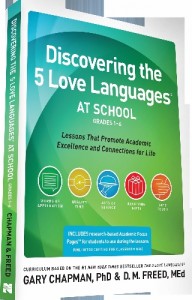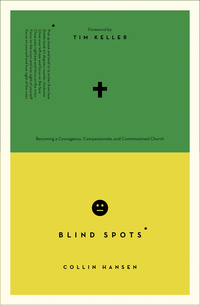
You have probably heard about Gary Chapman’s 5 Love Languages and how they can transform relationships. This simple concept suggests that people give and feel love in 5 main ways or ‘languages’:
- words of affirmation,
- quality time,
- acts of service,
- gifts,
- touch.
Once people understand the concept that some of these ‘languages’ will make an individual person feel deeply loved and others will not, they have learned a vital fact about relationships. Even better, once they know exactly which of these make a particular person feel loved, they have the key to that relationship. They will realize that some loving actions will just not be understood as love because the person does not really appreciate those ‘languages’.
Or, as it has been explained to children, “Sometimes we try to love people in a language that they don’t understand, and it doesn’t make them feel loved at all….Once you figure out what makes people feel loved, you can really be a better friend [and family member] to them.”
Teacher and guidance counsellor D. M. Freed was inspired by the thought of what this knowledge could do for elementary school kids so he developed a curriculum for them, Discovering the 5 Love Languages at School Grades 1-6: Lessons that Promote Academic Excellence and Connections for Life. Although this curriculum was developed for schools, its concepts and presentation can be adapted for use in families and homeschool co-ops including adults and teens.
Freed begins the 7-lesson curriculum with a discussion of connectedness research and the Love Languages. Then he explains how the curriculum is put together, with objectives, introductions, concepts explained on worksheets, closure, and independent practice or homework.
Of course, teaching about love means you have to define what it means in the context of the curriculum: ‘love’ is an action word and is about doing something for somebody. Each of the Love Languages and its opposite is also defined throughout the course of a lesson. Presenting the opposites not only helps clarify the love language but also helps address issues such as bullying, harassment, flattery, bribery, and unsafe touch.
Each lesson is presented in a fully scripted fashion as well as in an abbreviated outline, showing how to use the worksheets during the lesson. For each lesson, work sheets are available for grades 1-2, 3-4, and 5-6, and there are also sheets to help students take notes and reflect on what they have learned. Each lesson involves practical work to do at home and at school to improve relationships and is sensitive to the fact that for some children this will not be straightforward. Unlimited copying of the worksheets is allowed for classroom use, and these pages are perforated to allow that.
As an aside, being a homeschooler I was struck by the amount of information that can be collected about students and sent on from teacher to teacher. Each teacher then meets a new class through the opinions and biases of the previous teacher(s), which is a bit of a scary thought. However it can be a good thing when children are at risk, and this curriculum works hard to equip teachers to notice and support such children. I just hope that parents would also be informed.
One of the goals of the curriculum is to improve the connections among students, between staff and students, and in students’ families. Apparently children really respond to the idea that loving others involves skills that can be learned and practiced. They are also encouraged and empowered by learning their own Love Languages as well as those of their family and friends.
After having taught this curriculum 360 times in schools, author D. M. Freed says, “I have never taught a more rewarding curriculum during my entire teaching career. Many of us observed big changes in the attitudes of the students. They hungered for more lessons. The compliments from parents came pouring in weekly.”
From the results of applying small bits of the 5 love Languages over the years in our family, I can well understand that. That’s why I’m interested in adapting this curriculum for our homeschooling family–so that we can study the languages more systematically.
We have not yet had a chance to use this curriculum in our home but it is one of the things I plan to do over the next few months. We have discussed the 5 Love Languages before and have taken the online quizzes, but they did not work for us very well. As I read through this curriculum I understood the Love Languages a whole lot better and came closer to identifying the way I understand love. I’m hoping our family members will be able to determine our own Love Languages as well as learn how to show love more effectively.
Of course this whole curriculum assumes that the idea of the 5 Love Languages is valid. Undoubtedly it is not the final answer to relationships; people are much more complicated and changeable than is presented here. On the other hand, the 5 Love Languages can give us helpful insight into our loved ones and ourselves as well as some valuable tools to enhance relationships.
If you are looking for a way to help your children show love or a proactive, positive way to deal with negative issues, this curriculum will benefit your homeschool. It could also be helpful in a co-op or Sunday school setting and, of course, in elementary schools. If you are uncertain, I recommend exploring the idea of the 5 Love Languages and then contemplating what a deep understanding of the languages could do for your children.
—
This is yet another book in the in the 2015 52 Books in 52 Weeks Challenge and is also linked to Saturday Reviews, Booknificent Thursdays, Literacy Musings Monday, and The Book Nook.
For more encouragement, visit Raising Homemakers, Titus 2 Tuesday, R&R Wednesdays,.
Disclosure: This curriculum has been provided courtesy of Side Door Communications and I am not compensated in any way for expressing my own honest opinions.




